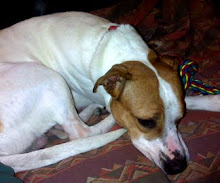I Am Canadian?
Ask an English Canadian what it means to be Canadian. They will furrow their brow, scratch their head, start to talk about Quebec independence before faltering. Then they will say with great conviction, “Well, we’re not American” before launching into a series of descriptions and anecdotes detailing the various atrocities and stupidities of the ugly American. Then they’ll say “We should have coffee some time”, which means ‘good-bye’ in English Canadian: you’ll never hear from them again, although they’ll be really, really, really happy to see you the next time you run into one another.
Ask a French Canadian what it means to be Canadian. The answer you hear will depend largely on where in Canada they’re from (Quebec or Manitoba, for example), what the politicians are doing anywhere in the country, how well the Quebec media has managed to look these actions appear anti-Quebec (some genuinely are), what day it is, what their mood is, if it’s raining, and so forth. Then they will tell you about their ancestor who came over from France and founded a family farm in the early 1600s. If you’re lucky enough to be near the farm, they’ll probably take you there. If they’re lucky, someone in the family still owns the farm and you’ll be invited to share a meal in a house built before Shakespeare died. You’ll discuss politics, Quebec pop stars, love, sex, share details you never thought you’d share with strangers and you will not be allowed to leave until long past your bedtime.
Ask me what it means to be Canadian and I’ll write this entry. I have felt like an outsider in Canada ever since I realised that American jokes are about my parents. I was born and raised in Canada by American parents. However, I feel Canadian, whatever that means, and have never had any strong desire to live in the States (although I could probably be happy in New York for a couple of years if I had a lot of money; I’d have to come back though).
I am often amazed by the insensitive hypocrisy Canadians can exhibit when it comes to Americans. The most politically correct Canadian, the one who shakes their head when you use ‘girl’ and ‘boy’ when you really mean ‘woman’ and ‘man’, will spout off the most amazing generalisations about our neighbours. When I point out that it’s a tad insensitive, they respond that I know what Americans are like. When I counter that, indeed I do, having been raised by a couple of them, the answer is invariably a variation on “Well, they’ve been here for years so they’ve obviously changed”. And I resist my urge to smack. Dan discusses below the Canadian penchant towards profuse apology, and it’s true for the most part in both official languages. However, this is one area where Canadians absolutely will not budge.
Although I can’t define it, I love being Canadian. I love all my clichés: health care, lefty politics, etiquette, wintry days with a loved one. I’ll take it all. I’m a gay man who can get married to another gay man. My largest concern with my county’s leader is how he will distribute money to our health care system, not whether he will embroil me in an unwinnable war halfway across the world. Ooop! Even I’ve done it. I’ve defined myself by comparing myself to the Americans. I am Canadian.
Now, ask a Native Canadian what it means to be Canadian and I have absolutely no idea what they’ll say. I think that says a lot about my country.


0 Comments:
Post a Comment
<< Home